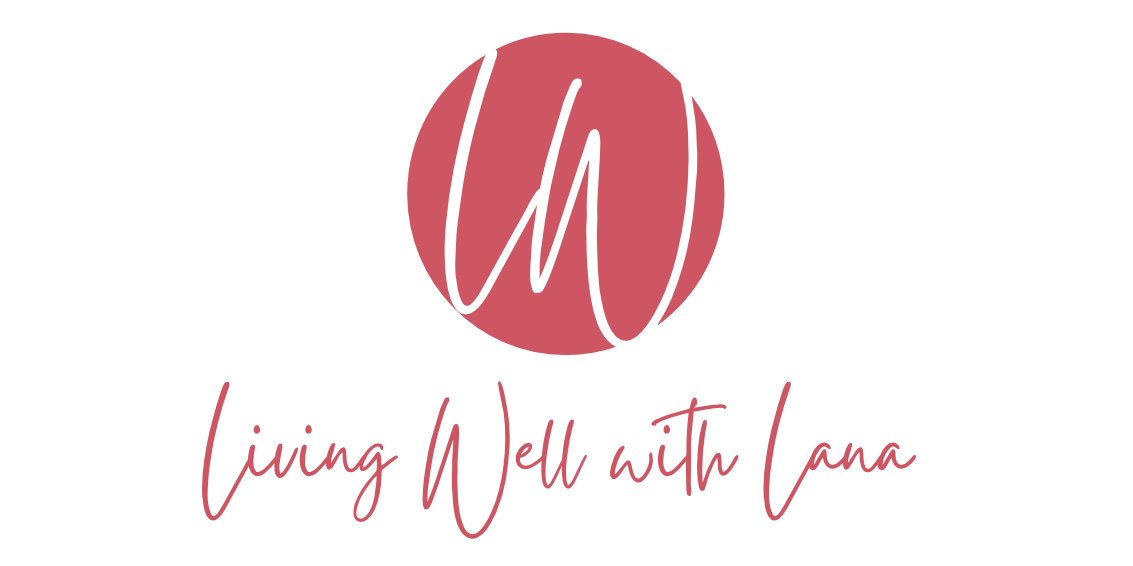If someone gave you 2 easy ways to significantly improve your health, would you do it? Of course, you would!
Most people want to do all they can to be healthy but don’t always know what or how to do it. Let me share two easy steps you can take each day to make a world of difference in your overall health.
1. Drink more water
Good ol’ H2O.
Did you know the human body is roughly 60 percent water? Hence, humans have an inherent need for water.

Many people think water is basic and boring, but it’s actually incredibly fascinating and plays a much more significant role in our health than we often give it credit. Let’s take a look, shall we?
Benefits of Water
Drinking water, or staying hydrated, is the first rule of health and fitness. The effects water has on our bodies are astonishing.
Mood and Memory
Water improves mood, attentiveness, critical thinking skills, and memory (National Library of Medicine, 2012). Even mild dehydration (around 4 cups or less a day) is associated with reduced cognitive function apparent by increased fatigue, sleepiness, worse mood, and attention.
Blood Pressure
Water helps regulate blood pressure (Vanderbilt University Medical Center, 2010). Blood pressure is the force your blood exerts on the walls of your arteries and veins.
High blood pressure is when your blood pressure reading is 140/90 mm Hg or higher. Dehydration can also lead to high blood pressure due to the action of a hormone called vasopressin. Vasopressin is released when the sodium level in the blood is high or when blood volume is low. Both of these happen when the body is dehydrated.
However, dehydration can also cause low blood pressure due to a decrease in blood volume. Low blood pressure is when your blood pressure reading is lower than 90/60 mm Hg.
Blood Glucose
Water helps lower high blood glucose. If our blood glucose levels are higher than they should be for prolonged periods, our kidneys will remove some of the blood’s excess glucose and eliminate this as urine. While the kidneys filter the blood in this way, they will also draw water from the blood, which will need to be replenished. If we don’t drink water, the body will find other available water sources within the body, like taking stored water from our blood cells.
Weight
If what I mentioned above didn’t interest you, I’m guessing this one got your attention.
Water plays an essential role in reducing body weight and overeating.
Our bodies can’t tell the difference between thirst and hunger. Thirst is triggered by mild dehydration and can be mistaken as hunger. It’s possible to decrease your appetite by drinking a glass of water if you truly aren’t low on calories.
Liquid calories are unnecessary and can easily be removed from your daily caloric intake. Because water has no calories, fill a glass with it instead of high-calorie alternatives like juice, soda, or other sweetened drinks.
Interesting fact, diet soda may have the same effects as sugary drinks. Just because they are calorie-free doesn’t make them good for you.
Exercise
Water is essential during exercise. It dissolves electrolytes and sends them throughout the body—these electrolytes trigger muscle contractions required for movement. An imbalance in electrolytes can cause muscle cramping.
Also, when muscles are dehydrated, the body breaks down protein quicker and builds muscle slower. If our goal of working out is to build lean muscle mass (which it should be), staying hydrated during exercise is critical.
How Common is Dehydration?
Dehydration is more common than you may think and is entirely preventable.
While occasional mild dehydration is not a problem, being chronically dehydrated may threaten long-term health and well-being.
Fluid Intake Varies
Many factors impact how much water individuals need, including age, gender, activity level, and overall health. Women require more water during pregnancy and while breastfeeding. Individuals with certain health conditions also have different fluid needs. The same is true for those with serious infections or diarrhea.
Adequate water intake levels for generally healthy people have been determined.
The amount of total water intake for women is about 11.5 cups per day; for men, about 15.5 cups. However, these estimates include fluids consumed from both foods and beverages, including water. We typically get about 20% of the water we need from the food we eat. Considering that, women need about nine cups of fluid per day and men about 12.5 cups.
If you’d like even more information, here’s a link to an in-depth article about the effects of hydration on health by Oxford University Press.
2. Move Your Body
One of the best ways to improve your health is to move your body. Bodies are created to be physically active.
Exercise comes in many different forms, including walking, swimming, running, and designed workout routines, to name a few.
Whichever form of exercise you choose, moving your body has many benefits.
Mood
Exercise has been shown to improve mood and decrease the feeling of depression, stress, and anxiety. It increases the production of endorphins, which help produce positive feelings and reduce pain perception. Exercise has also proven to reduce symptoms of those suffering from anxiety.
Interestingly, it doesn’t matter how intense your movement is; your mood can benefit from all activity levels.
Weight Loss
Our bodies spend energy in three ways: digesting food, maintaining bodily functions like heartbeat and breathing, and exercising. When dieting, our metabolism lowers. However, exercise increases metabolism, which will burn more calories and assist in weight loss.
Combining cardiovascular exercise with resistance training can maximize fat loss and increase muscle mass, helping keep weight off.
Muscles and Bones
Inactivity causes loss of bone. Physical activity helps build muscles and strong bones and helps prevent weak, fragile bones caused by osteoporosis.
Exercise makes bones strong, much like it does muscles. It’s important for building strong bones when we are younger, and it’s essential for maintaining bone strength as we age. Bone adapts by building more bone and becoming denser.
Weight-bearing exercises can prevent further bone loss and strengthen bones. Be sure to include these types of activities in your workout routine. Of course, people who are diagnosed with thinning bone should talk to their doctor about which exercises would be best for them.
Here are a few examples of weight-bearing exercises.
- Walking
- Jogging, running
- Stair climbing
- Tennis
- Resistance training
Energy Levels
Any physical activity that increases your heart rate, gets your blood flowing, and releases those mood-enhancing endorphins we discussed earlier, is going to raise your energy level.
Good aerobic exercise will strengthen your heart and lead to better stamina.
Chronic Disease
Regular exercise can improve insulin sensitivity and decrease blood pressure and blood lipid levels. Lack of regular exercise is the leading cause of chronic disease. A lack of physical activity can lead to increased belly fat, which increases the risk of heart disease, type 2 diabetes, and early death.
Memory and Brain Heath
Like water, regular exercise will improve brain function, assist in thinking skills, and protect memory.
As your heart rate increases, the flow of blood and oxygen increases to your brain. Exercise also produces hormones that can enhance the growth of brain cells.
Physical activity has been shown to cause growth in a part of the brain that’s vital for memory and learning, known as the hippocampus.
Pain Reduction
When you suffer from chronic pain, it can be challenging to start an exercise regimen. However, several studies have indicated exercise helps reduce pain associated with chronic low-back pain, fibromyalgia, and soft tissue shoulder disorder.
Sleep
Regular exercise can help you relax, which can lead to better rest. As little as 10 minutes of aerobic activity, such as walking or cycling, can dramatically improve sleep quality.
Exercise can also reduce the risk of developing sleep disorders like sleep apnea and restless leg syndrome.
How Much Exercise Do Adults Need?
As you can see, physical activity improves quality of life and improve nearly every aspect of your health. But how much is enough?
According to the American Heart Association, adults should get at least 150 minutes per week of moderate-intensity aerobic activity and 75 minutes of vigorous aerobic exercise, or a combination of both, preferably spread through the week. Add resistance or weight lifting activity at least two days per week. Being active at least 300 minutes (5 hours) per week will be even more beneficial.
Are you already physically active? Could you add a few more minutes or a bit more intensity? Say yes! We all have a little more in us. Dig a bit deeper; you’ll find it.
In Summary
You can improve your overall health by making two simple adjustments to your daily routine: increasing your water consumption and moving your body more.
The results will amaze you!










So, we have all backslid with exercising, eating right, and water intake. This article is in good timing for our house. We have been struggling with some depression through this pandemic, like so many. We never thought about it also being related to the lack of regular exercise and water intake. So, we are starting back with it today. No need to wait until after the holidays! We can’t wait to see improvements in mood and energy.
I love your drive and determination, Wendy! This pandemic has been tough and many are struggling to stay on track. I’m glad to hear you and your family are taking action to help your bodies as much as possible. You’ve already experiended what proper nutrition and exercise can do. I’m excited to hear about the improvements you find next.
Water is so overlooked. I take it for granted and never seem to get enough of it each day. Thanks Lana for the reminder of all water’s benefits. Gonna definitely make it a priority by having two big glasses full at the beginning of the day, two big glasses at mid day and a good two glasses after exercise.
Drink up, Shelley. 🙂